Related Research Articles

The Istanbul Film Festival is the first and oldest international film festival in Turkey, organised by the Istanbul Foundation for Culture and Arts. It is held every year in April in movie theaters in Istanbul, Turkey. As mentioned in its regulations, the festival aims to encourage the development of cinema in Turkey and to promote films of quality in the Turkish cinema market.

Kutluğ Ataman is an acclaimed Turkish-American contemporary artist and feature filmmaker. Ataman's films are known for their strong characterization and humanity. His early art works examine the ways in which people and communities create and rewrite their identities through self-expression, blurring the line between reality and fiction. His later works focus on history and geography as man-made constructs. He won the Carnegie Prize for his works Kuba in 2004. In the same year he was nominated for Turner Prize for his work Twelve.

The International Romani Day is a day to celebrate Romani culture and raise awareness of the issues facing Romani people.
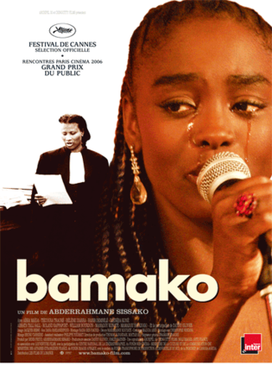
Bamako is a 2006 film directed by Abderrahmane Sissako, first released at the 2006 Cannes Film Festival on 21 May and in Manhattan by New Yorker Films on 14 February 2007.
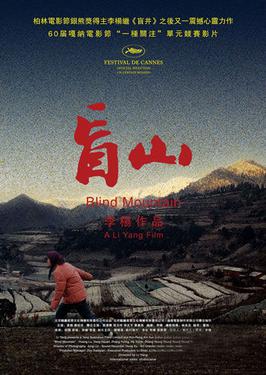
Blind Mountain is a 2007 Chinese film directed by Li Yang. It is also known as Road Home.

The 65th annual Venice International Film Festival, held in Venice, Italy, was opened on 27 August 2008 by Burn After Reading, and closed on 6 September 2008. International competition jury, led by Wim Wenders, awarded Golden Lion to The Wrestler, directed by Darren Aronofsky.

The 62nd Cannes Film Festival was held from 13 May to 24 May 2009. French actress Isabelle Huppert was the Jury President. The Palme d'Or winner was The White Ribbon, directed by Michael Haneke.

Asylum Seekers is an American black comedy film written and directed by Rania Ajami. The film stars Pepper Binkley and Daniel Irizarry as two of the six social outcast protagonists who attempt to get themselves committed to an insane asylum in order to spice up their lives. Bill Dawes, Judith Hawking, Stella Maeve, Camille O'Sullivan and Lee Wilkof also star.

Maud de Boer-Buquicchio is a Dutch jurist and former UN Special Rapporteur on the sale of children, child prostitution and child pornography. She served as Deputy Secretary General of the Council of Europe from 2002 and retired from the post in 2012 and was succeeded by Gabriella Battaini-Dragoni.
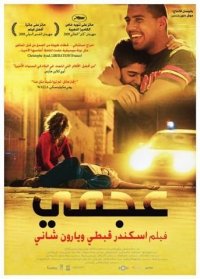
Ajami is a 2009 Israeli Arab drama film. Its plot is set in the Ajami neighborhood of Jaffa, Tel Aviv, Israel.
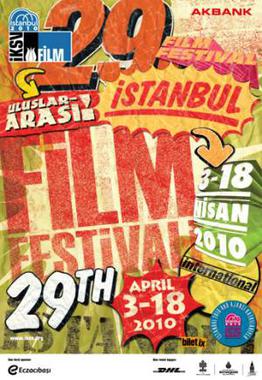
The 29th International Istanbul Film Festival was a film festival held in Istanbul, Turkey, which ran from April 3 to 18, 2010. More than 200 films were screened in 23 categories at seven movie theatres including Atlas, Rüya, Beyoğlu, Sinepop, Pera Museum theaters in Beyoğlu, the Kadıköy theater in Kadıköy and the Nişantaşı CityLife Cinema (City's).
Zeka Laplaine, sometimes credited as José Laplaine, is a director and actor from Ilebo in the Democratic Republic of the Congo. The child of a Portuguese father and Congolese mother, he moved to Europe when he was 18. His 1996 short film Le Clandestin was featured at the 2010 Amakula International Film Festival in Uganda. He portrayed a cowboy alongside Danny Glover in Death in Timbuktu, a film within a film in the Council of Europe Film Award-winning film, Bamako. Laplaine is a member of France's "Guilde Africaine des Realisateurs et Producteurs".
The European Civil Rights Prize of the Sinti and Roma was founded in November 2007 in Heidelberg by the Central Council of German Sinti and Roma, the Documentation and Cultural Centre of German Sinti and Roma and the Manfred Lautenschläger Foundation. The international prize is endowed with 15.000 Euro by the Foundation. It was awarded for the first time in December 2008.

Final Cut for Real ApS is a film production company based in Copenhagen, Denmark specializing in documentaries for the international market. The two Oscar-nominated groundbreaking documentaries The Act of Killing (2012) and The Look of Silence (2014) helped establish the company as a recognized provider of independent creative documentaries on the international stage. The recent years, Final Cut for Real has also expanded to fiction films and virtual reality. In 2019 Final Cut for Real Norway was established.
Scandar Copti is a Palestinian filmmaker, film writer, actor and producer who examines social problems of Arab society in Israel through his film works.
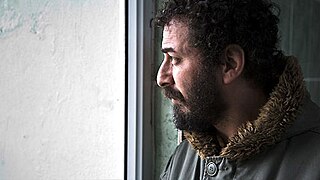
Bülent Öztürk is a Belgian-Kurdisch screenwriter and director based in Antwerp, Belgium. His films have been nominated for and celebrated with several (international) awards. His films stand out because of their minimalist and documentary style with spare use of dialogue and the recurrence of socially and culturally concerned themes. His short film Houses with Small Windows (2013) was awarded the title of best European short film at the Venice Film Festival, and was nominated for the 26th European Film Awards in Berlin. In his home country the film received an ‘Ensor’ for best short film at the Ostend Film Festival. Apart from writing and directing two documentaries and three short films, Öztürk presented his first feature film Blue Silence in 2017, with the support of The Flanders Audiovisual Fund (VAF).

Coproduction Office, founded in 1987, is composed of four production divisions in Berlin, Paris, Copenhagen and London, and an international sales company, all specialised in Auteur Cinema. Coproduction Office’s founder Philippe Bober has produced forty films to date with twelve of these having been selected to screen in Competition in Cannes, winning two Golden Palms: Triangle of Sadness and The Square both by Ruben Östlund.
The Birdwatcher aka The Observer is an Estonian film directed by Arvo Iho for the Tallinnfilm studio, filmed in 1987 in the northern Urals, and first shown in cinemas in 1988. It stars Svetlana Tormahova as a Russian forester and Erik Ruus as a student who meets her while studying ornithology on the island where she works.

Kazim Öz is a Kurdish film director, scriptwriter and producer. In 1992 he began acting at Teatra Jiyana Nû, while also working on movies.
References
- 1 2 "Human Rights in Cinema". Istanbul International Film Festival, Istanbul Foundation for Culture and Arts. Archived from the original on 2007-10-27. Retrieved 2008-04-03.
- 1 2 Council of Europe Press Division. ""Bamako", winner of the first Council of Europe film award in Istanbul". Council of Europe Directorate of Communication. Retrieved 2008-04-04.
- ↑ Council of Europe Film Award (FACE) Archived 2010-07-09 at the Wayback Machine
- ↑ "Awards of the 27th International İstanbul Film Festival". Istanbul International Film Festival, Istanbul Foundation for Culture and Arts. Archived from the original on 2009-07-07. Retrieved 2008-04-24.
- ↑ "Council of Europe Film Award (FACE)". Council of Europe . Retrieved 2008-04-04.